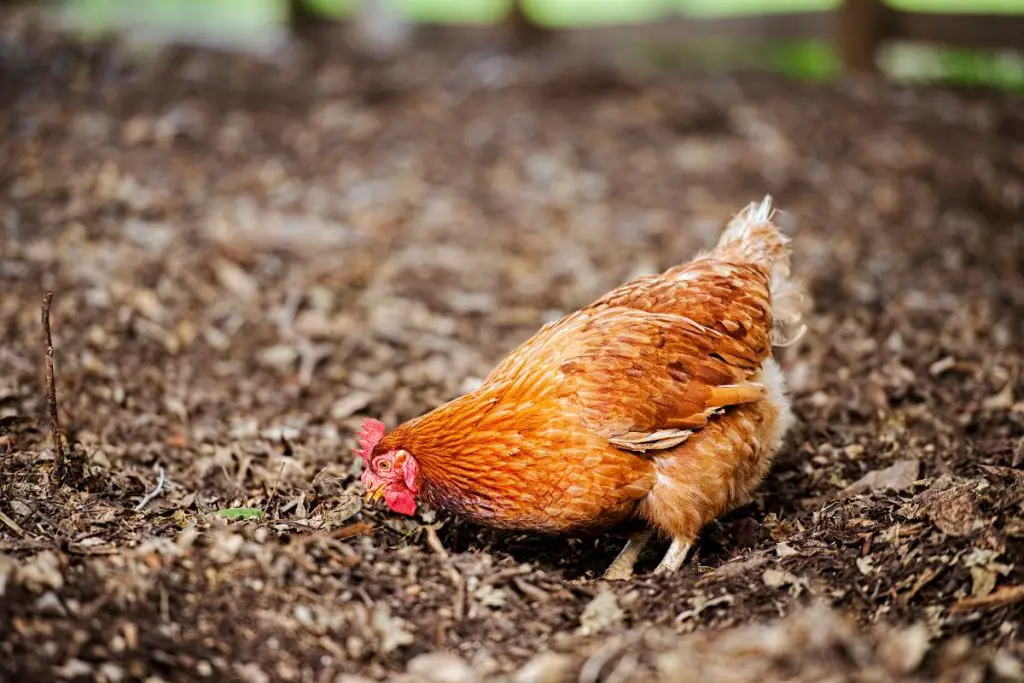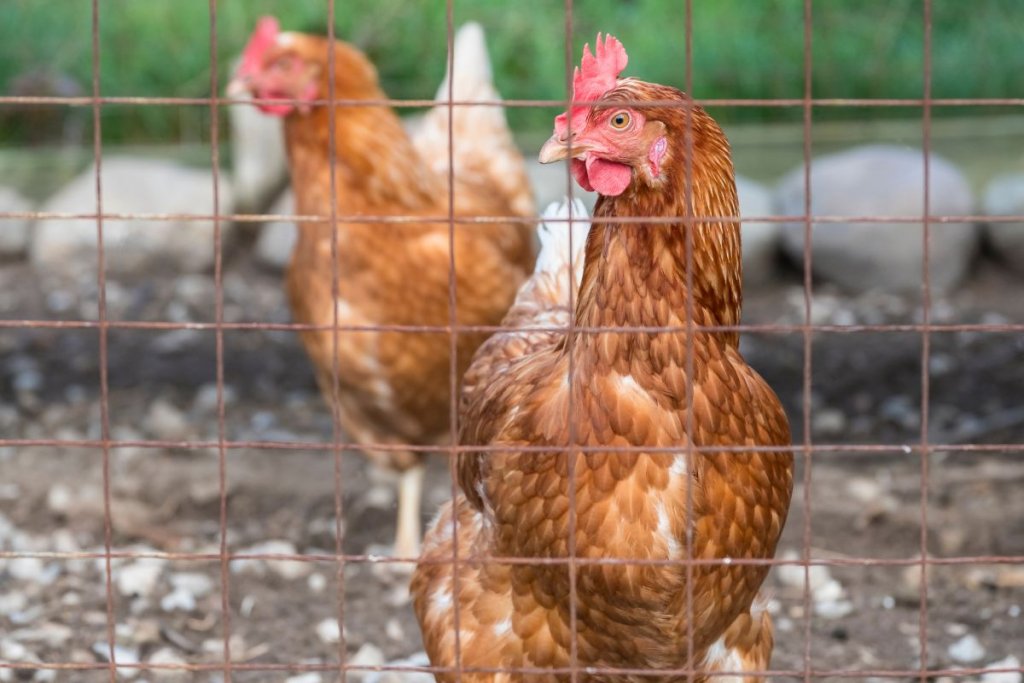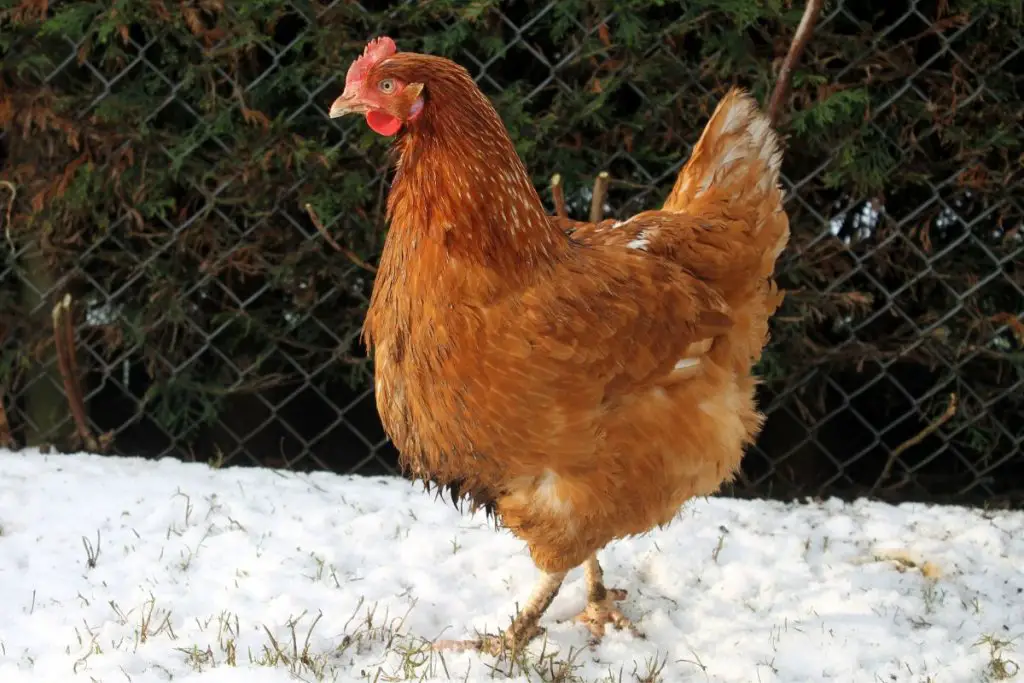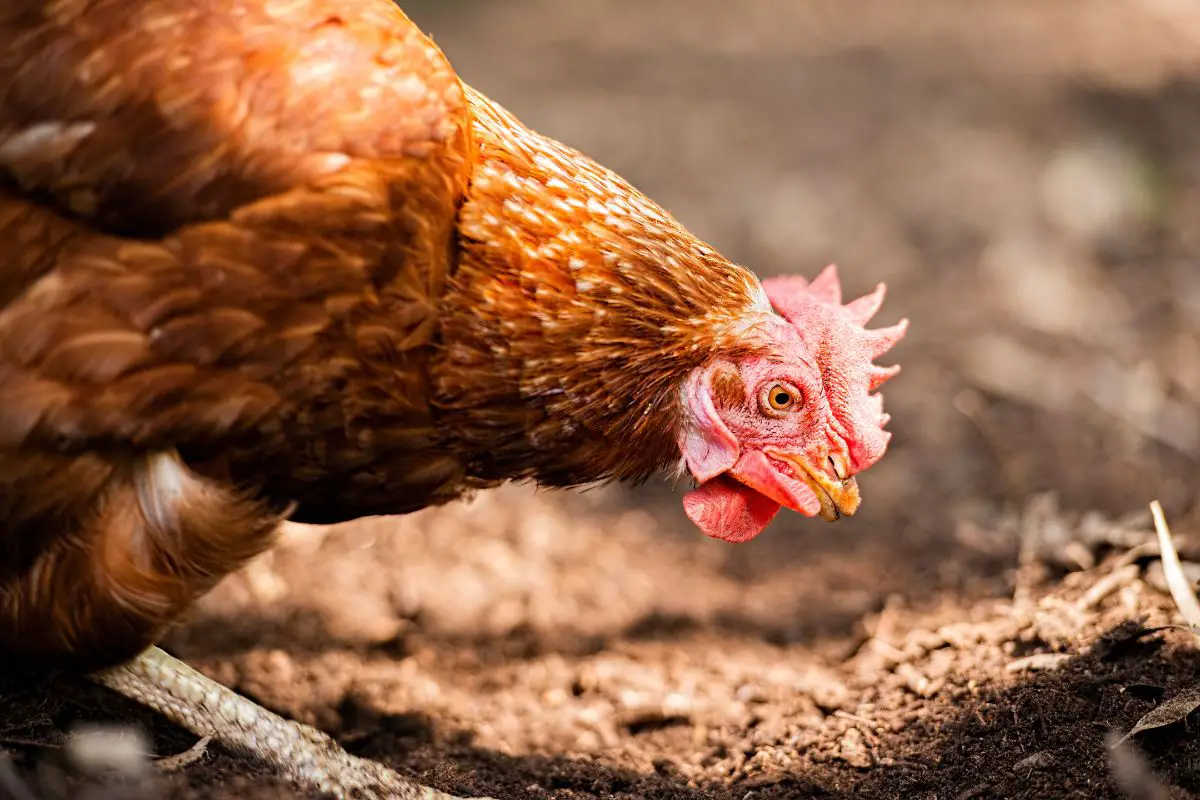Isa Brown Chickens are egg-laying machines and lay 1 egg per day on average, but only live for around 5 years even in excellent free-ranging conditions. Weighing 5lbs, they are prized for their egg-laying capabilities for families with children more than their meat.
Through this article, we’ll help you decide whether the Isa Brown Chicken is right for your backyard. Let’s begin!
Table of Contents
What is an Isa Brown Chicken?
Isa Brown Chickens are adorable hybrid chickens and are sought after by backyard chicken keepers due to their egg laying ability. They are very popular birds to keep in backyard chicken coops and are both friendly and docile. They are great birds for beginners and experts alike.
They are believed to be a cross between a Rhode Island Red and White Leghorn chicken (though the exact breeds involved have not been officially released to the public).
Isa Brown Chickens have a lifespan much shorter than other breeds, with an average life expectancy of 2-3 years, though some can live as long as 5 years with proper care.
Where do Isa Brown Chickens Come From?
Isa Brown Chickens are a relatively new breed of chicken. ISA stands for Institut de Selection Animale, and the breed was developed in France in 1978, but later became known as the Hubbard chicken, when Merck and Co. merged with the Institut and renamed the chicken.
So if you see Isa Brown Chicken or Hubbard chicken, they are referencing the same breed.
What does an Isa Brown Chicken look like?
As Isa Brown chickens are a hybrid breed, there is no official breed standard in place for them. However, the Isa Brown hen name is protected and you cannot sell any bird and call it an Isa Brown hen unless it truly is one as the name is protected by copyright.

This breed is not accepted at the largest and most prestigious poultry shows, but it may be accepted at smaller venues. The Isa Brown Chicken looks incredibly similar to a Rhode Island Red, and you may not be able to tell the difference at first glance, aside from the slightly lighter shade of chestnut brown on an Isa Brown Chicken.
The Isa Brown Chicken is a bird weighing around 5lbs as an adult, with medium size and a rectangular-shaped
body profile. The birds stand tall with tail feathers held aloft, and you may occasionally see them with white tail feathers. They have a single, red comb and wattle, and their eyes can be yellow or pale bay red.
What kind of personality does an Isa Brown Chicken have?
Isa Brown Chickens are sweet and docile birds that aren’t overly active, making them a good choice for backyard flocks. They are friendly and get along well with humans, and enjoy being cuddled.

This bird is easy to pick up and hold, and if you‘re looking for a pet, an Isa Brown Chicken would be a wonderful choice. Isa Browns while social, aren’t overly loud or noisy which can be good if you have neighbors who are sensitive to noise.
Isa Brown hens were raised to not be broody, and make wonderful mothers.They do enjoy foraging for tasty treats outside and will appreciate being free range, though they also do well in confinement.
How many Eggs will an Isa Brown Chicken Lay?
Isa Brown chickens are prolific egg layers! Isa Brown laying chickens have high egg production and they will produce on average 6 eggs per week, or 300 eggs per year, making them one of the best egg layers available.
You can expect to receive large brown eggs from your laying hens with Isa Brown pullets reaching the point of lay somewhere between 18 and 22 weeks. The good news is that they do lay eggs year-round, and the number of eggs remains relatively steady.
Is it Easy to Breed Isa Brown Chickens?
Backyard chicken breeders would do well to not attempt to breed Isa Brown Chickens. As a hybrid bird, they will not breed true to the parent stock.
They are notoriously difficult to breed due to health issues, especially reproductive tract issues due to their high egg production, including prolapse, tumors and various cancers. Unfortunately, chicks are also quite likely to have health problems, such as kidney issues.
Rather than breeding them yourself, buy your Isa Brown Chickens from a reputable breeder. When selecting your chicks, you should know that Isa Brown Chickens have sex-linked traits, so you can easily divide them by sex based on their appearance: white chicks will be roosters, and tan chicks will be hens.
What type of Food does Isa Brown Chickens Eat?
Due to the high egg production of Isa Brown Chickens, it is advisable to give them high-quality chicken feed that has a higher protein base (18%).
You should always provide oyster shells after the first molt to ensure they get enough calcium. Make sure you are always providing plenty of clean, fresh water to drink for your backyard flock.
If you notice any signs of dehydration, you can add supplements such as electrolytes, or vitamins to their water once a month.
Are Isa Brown Chickens right for you?
Isa Brown Chickens are a great choice, especially if you are looking for lots of eggs. They are a fantastic fit for families with little experience due to them being low maintenance.

They enjoy human interaction and can be affectionate with kids and adults, and Isa Brown hens are not aggressive. Isa Brown Chickens do well in warm climates and cold, although providing adequate shelter is a must.
These birds are popular in the United States and Australia but are gaining popularity worldwide and would make a wonderful addition to your backyard chicken coop. Luckily, they are a fairly common breed and not difficult to obtain.
If you decide that the Isa Brown Chicken is right for you, keep an eye out for health issues that can befall these hardworking hens because of their high egg production and ensure they get adequate veterinary treatment and care.
For the best care and to encourage longevity, be sure to feed them a high protein diet and ensure they have access to oyster shells for the calcium. The rewards are well worth the extra care!

